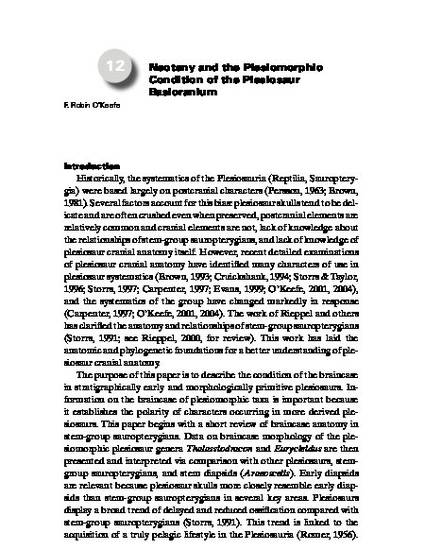
The purpose of this paper is to describe the condition of the braincase in stratigraphically early and morphologically primitive plesiosaurs. Information on the braincase of plesiomorphic taxa is important because it establishes the polarity of characters occurring in more derived plesiosaurs. This paper begins with a short review of braincase anatomy in stem-group sauropterygians. Data on braincase morphology of the plesiomorphic plesiosaur genera Thalassiodracon and Eurycleidus are then presented and interpreted via comparison with other plesiosaurs, stemgroup sauropterygians, and stem diapsids (Araeoscelis). Early diapsids are relevant because plesiosaur skulls more closely resemble early diapsids than stem-group sauropterygians in several key areas. Plesiosaurs display a broad trend of delayed and reduced ossification compared with stem-group sauropterygians (Storrs, 1991). This trend is linked to the acquisition of a truly pelagic lifestyle in the Plesiosauria (Romer, 1956).

Chapter reprinted with permission.
© 2006 University of Chicago Press. Printed with permission. All rights reserved.